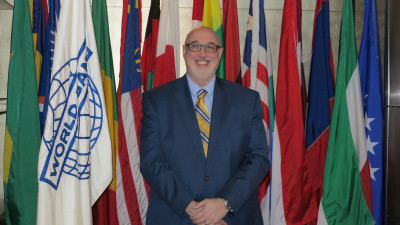When disaster strikes what can procurement do
Whatever disaster occurs in your community will mean all expertise will need to be used to get people back into a sense of normality as quickly as possible as they respond to the incident and rebuild.

Chris Browne Senior Consultant in procurement for the World Bank. Photo: Supplied
Procurement has a role to play in how communities respond to disaster.
Chris Browne, a Senior Consultant in procurement for the World Bank and former director of New Zealand Government Procurement (NZGP), knows this from personal experience.
When he led the procurement reforms in New Zealand he was part of the emergency response to the Christchurch earthquake.
“When the Christchurch earthquake struck, it was crucial to act swiftly and decisively to support the emergency response.”
Given disaster can happen at any time, Chris sat down with Focus on Procurement to discuss what procurement teams could do when disaster strikes their communities they work in.
Chris said leading procurement during a natural disaster is not just about following procedures; it's about making a real difference in people's lives.
“By being flexible, taking calculated risks, adapting to new challenges, and fostering collaboration, procurement leaders can play a vital role in the recovery and rebuilding process.”
Below are Chris’s top tips on how to navigate procurement in a natural disaster.
Take calculated risks while maintaining integrity
Emergencies require a balance between speed and caution. It's essential to manage risks and costs sensibly while being willing to take calculated risks. The priority is to get the job done fast with integrity, fairness and equity. It's important to keep good records and document the reasons and surrounding context for decisions made during the emergency. This means procurement decisions can be justified and audited later, which they will be.
Adapt and innovate
Emergencies often demand innovative solutions and adaptability. The procurement community demonstrated this during the COVID-19 pandemic by addressing severe supply shortages with flexible and adaptable approaches. Similarly, in the aftermath of the Christchurch earthquake, procurers had to be dynamic and resourceful to meet the immediate needs of the affected communities.
Support and collaborate
Effective procurement in emergencies relies on strong collaboration and support from all stakeholders. At the World Bank, our teams regularly support countries recovering from natural and man-made disasters, including fragile, conflict, and violence situations. This experience underscores the importance of working together, sharing knowledge, and providing hands-on assistance to ensure successful outcomes.
Be flexible and pragmatic
In an emergency, the usual procurement rules and procedures need to be adapted to meet the urgent needs of the situation. For example, during the Christchurch earthquake, MBIE instructed agencies to apply emergency provisions under the mandatory procurement rules, effectively waiving almost all public procurement rules for around 2 to 3 years. This flexibility allowed procurers to act quickly and efficiently as well as proportionally to the challenges at hand.
Whatever disaster occurs in your community will mean all expertise will need to be used to get people back into a sense of normality as quickly as possible as they respond to the incident and rebuild. There are rules and guidelines to help govern this process when such things as states of emergency are declared. Procurement specialists are well placed to help people on what could be one of the worst days of their lives.
For more information about emergency procurement visit: